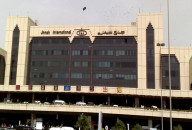The IMF needs to do more
Besides appealing to bilateral and multilateral donors and the UN system, Pakistan must approach the IMF as well

Now that the hard-bargained instalment of $1.16 billion has been released, Pakistan must ask the IMF to do more. The revival of the IMF programme comes at a time when its underlying economic model has been made redundant by the humanitarian crisis brought upon the one-third of the country by flash flooding of unparalleled proportions. In particular, it has washed away the already low projections of growth and the assumptions of fiscal deficit built in budget for FY23. With some effort, adherence to a market-determined exchange rate may be possible, though the budgetary fallout could create problems here as well. Monetary prudence will also have its limits. After the balance of payments, the IMF has to support the budget. Fortunately, the IMF itself has a window for such unexpected emergencies. Besides appealing to bilateral and multilateral donors and the UN system, Pakistan must quickly approach the IMF as well. In the past, the facility was called Emergency Natural Disaster Assistance and Emergency Post-Conflict Assistance. Recently, the two have been merged into one, more flexible, Rapid Finance Instrument (RFI) with a broader coverage. Pakistan can seek assistance under the Large Natural Disaster window for 80% of quota. Access limits were temporarily increased for Covid-19 financing and Pakistan was one of the beneficiaries in 2020. These are outright purchases without any reviews. The eligibility is for a damage of at least 20% of GDP. It is too soon to assess the floods damage fully, but the initial assessment is between 10-12 billion dollars. With the entire Sindh and Balochistan devastated, together with parts of Punjab and KP, the ultimate damage assessment is likely to be a multiple.
In April 2020, the Executive Board of the IMF approved the Covid-19 related purchase by Pakistan under the RFI. It was 50% of Pakistan’s quota at $1.386 billion. As at present, Pakistan was already under the EFF programme. The case then was to provide space for greater public health spending and social safety nets. Presently, the requirement is a lot more. Immediate rescue and relief need not just cash transfers and disease control, but food, tents, etc. The first line of relief in such emergencies, as witnessed during the earthquake of 2005 and the floods of 2010, are the NGOs and INGOs. It was weakened by a thoughtless state policy. Inflation, already at historic highs, will be even higher with the destruction of fruits and vegetables farms and a completely broken transport network. Crops, particularly cotton and rice, and livestock have suffered enormous damage. Imports will have to be lined up as wheat stocks have been washed away. Reconstruction of houses and infrastructure will demand even larger expense. Flash floods inflict more damage than floods. When one follows the other, the combination is lethal. So the request under the RFI must be to access 80% of the quota. The resumption of the EFF was expected to reduce uncertainty and promote a stable outlook. But the shock of flash floods may well force a recalibration of the EFF. Before the Covid-19 shock, the external account was improving, there was a primary surplus in the fiscal account and the economy was showing some strength. Now it is the opposite. The shock this time will increase the balance of payments needs. A fiscal stimulus, along with monetary easing, will be inescapable.
If approved, the RFI is a one tranche release to support emergency response of the government. It will also give a signal to the slowly awakening multilateral and bilateral donors. But this should not provide an excuse to stop thinking on structural reform.
Published in The Express Tribune, September 2nd, 2022.
Like Opinion & Editorial on Facebook, follow @ETOpEd on Twitter to receive all updates on all our daily pieces.














COMMENTS
Comments are moderated and generally will be posted if they are on-topic and not abusive.
For more information, please see our Comments FAQ